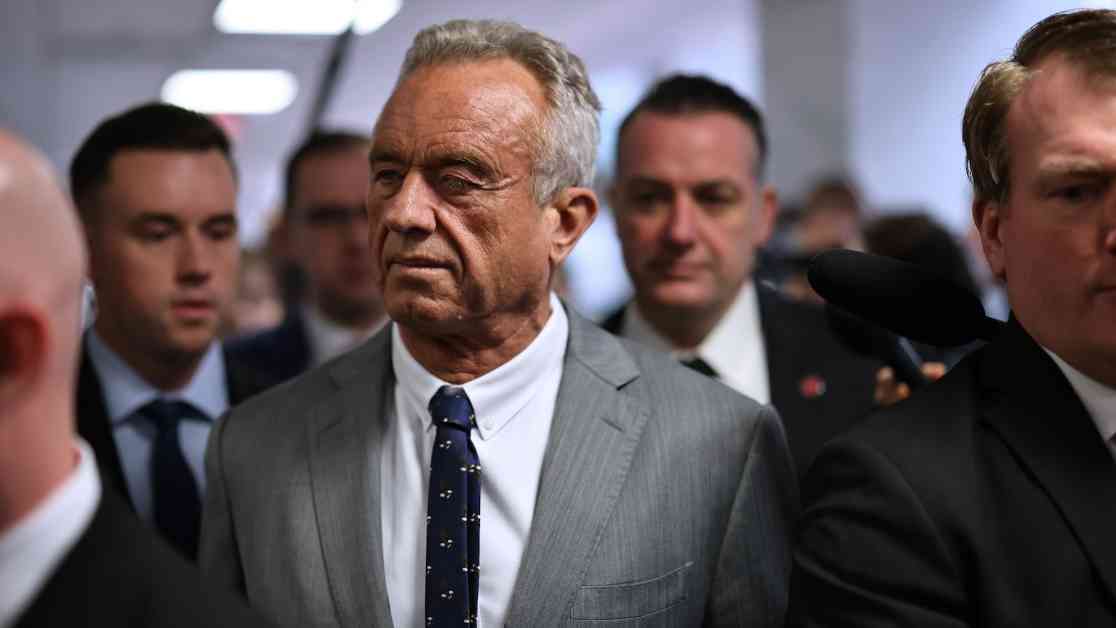RFK Jr. Advocates His Stance on Polio Vaccine to GOP Senators
Robert F. Kennedy Jr. made a compelling return to Capitol Hill on Tuesday, seeking to convince Republican senators of his capability to lead the Department of Health and Human Services. Also present on the Hill was Tulsi Gabbard, President-elect Donald Trump’s nominee for director of national intelligence, engaging in discussions with two Democratic senators and five Republicans.
Senators Express Differing Views on Kennedy’s Stances
Among the senators, there was a mix of support and skepticism towards Kennedy’s positions. Sen. Josh Hawley, R-Mo., expressed optimism that Kennedy would align with President Trump’s policies despite their differing views on agriculture. However, other senators like Sen. John Kennedy, R-La., criticized Kennedy’s personal attorney’s efforts to revoke the polio vaccine approval.
Reactions to Kennedy’s Advocacy Against Vaccines
Kennedy’s stance on the polio vaccine has sparked controversy, with reports of his attorney lobbying the FDA to revoke its approval. Despite this, Kennedy affirmed his support for the polio vaccine, aiming to clarify any misconceptions surrounding his position. Sen. Tommy Tuberville, R-Ala., praised Kennedy as a “breath of fresh air,” emphasizing the importance of informed parental decisions regarding vaccines.
Democrats and Republicans Engage with Nominees
On the Democratic side, Sen. Dick Durbin underscored the significance of investigating nominees on crucial issues like abortion and vaccines. Sen. Elizabeth Warren voiced her reservations about Kennedy’s anti-vaccine campaigns, questioning his suitability to lead the Department of Health and Human Services. Meanwhile, Gabbard engaged in discussions with senators from both parties, emphasizing the need for thorough vetting and open dialogue in the confirmation process.
As the political landscape continues to evolve, the interactions between nominees and senators shed light on the diverse perspectives shaping crucial policy decisions. With contentious issues like vaccines and abortion at the forefront, the scrutiny and support surrounding nominees like Kennedy and Gabbard underscore the complexities of governance in a divided political climate.


